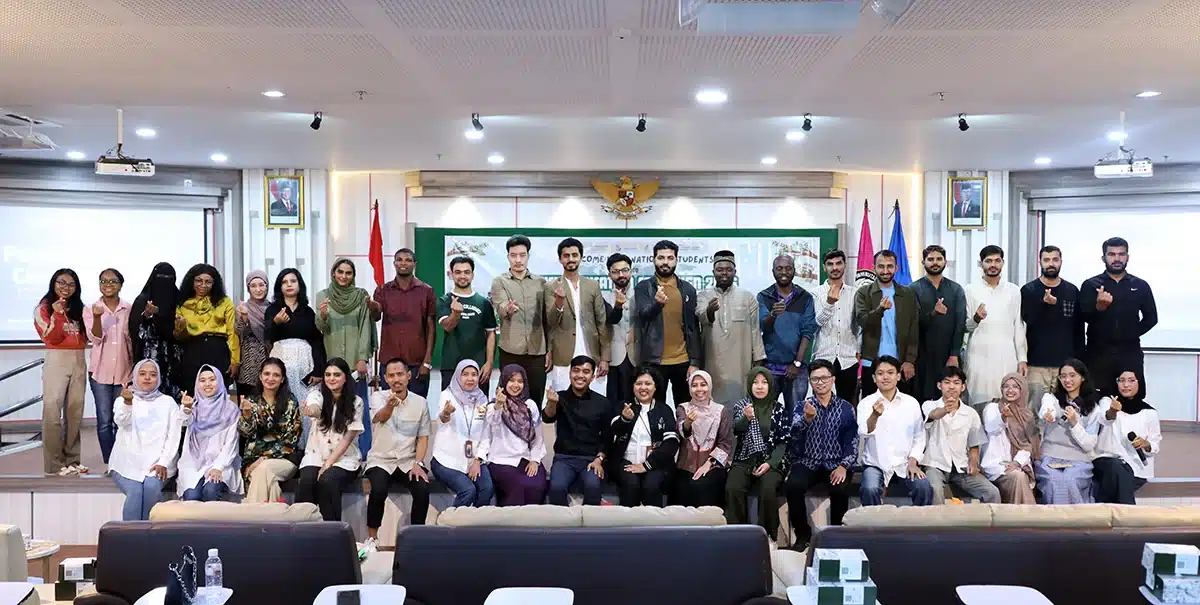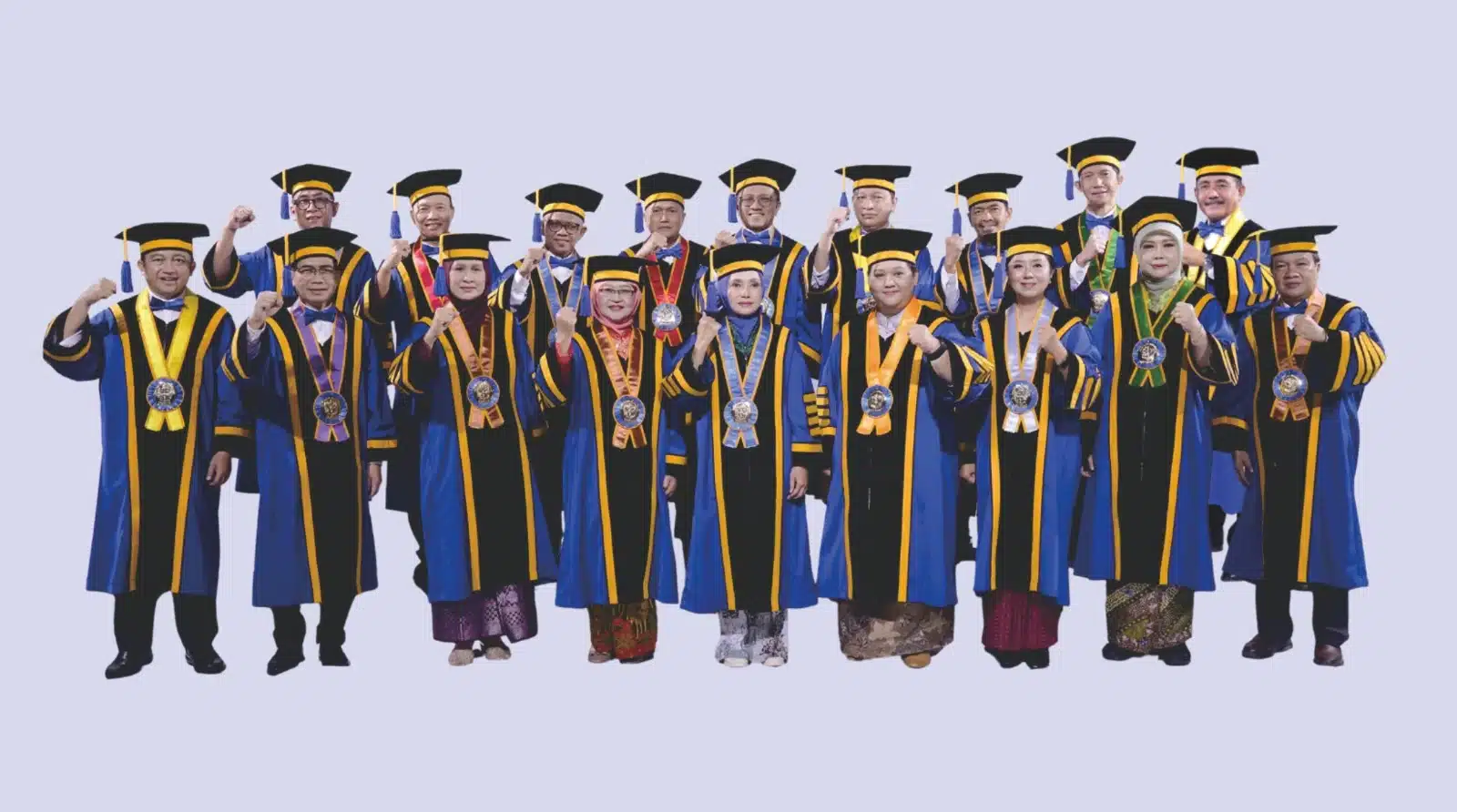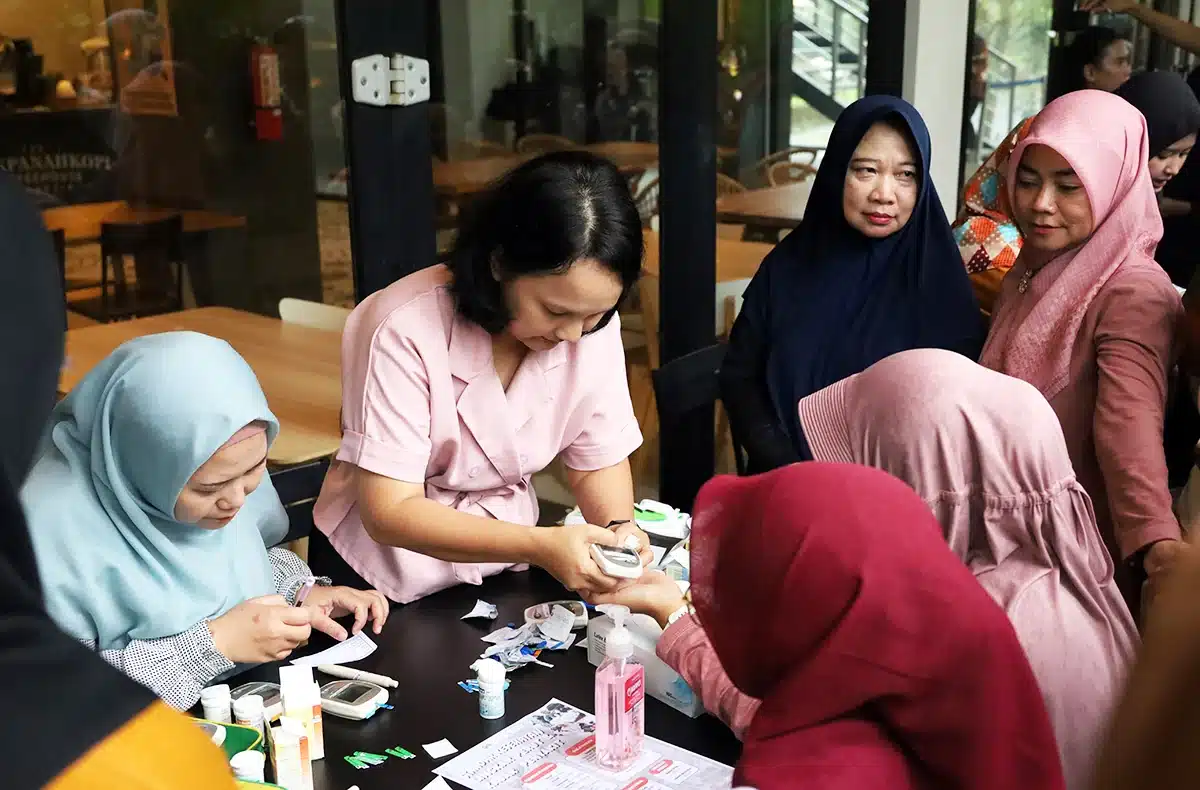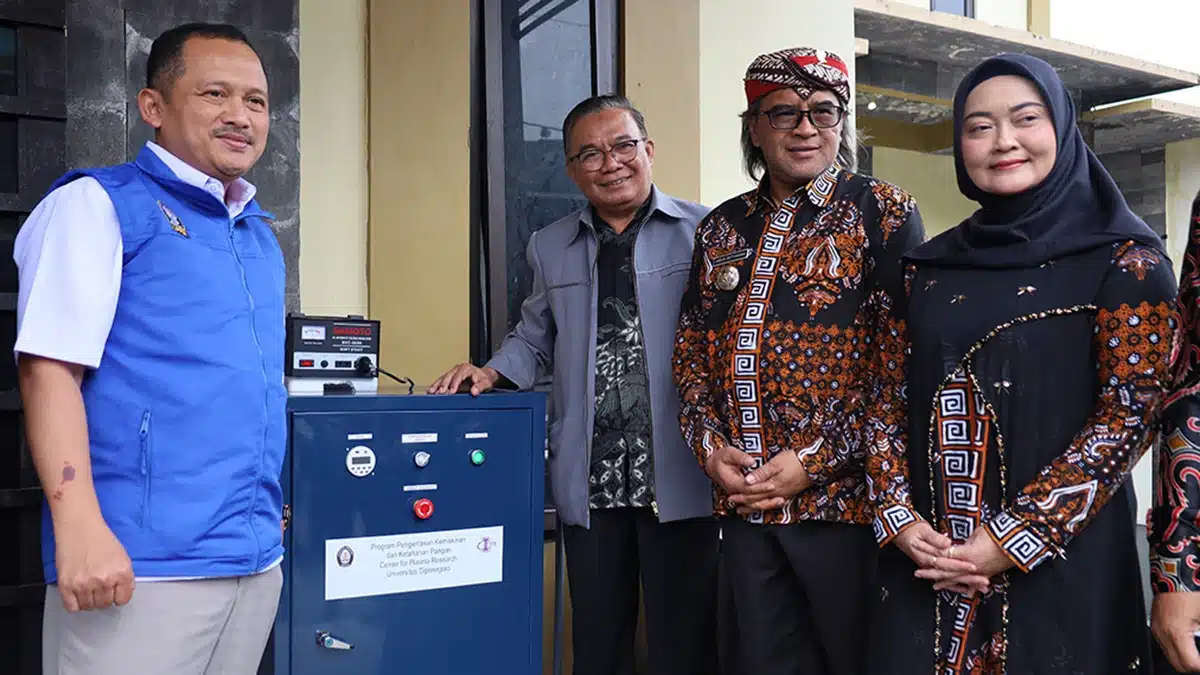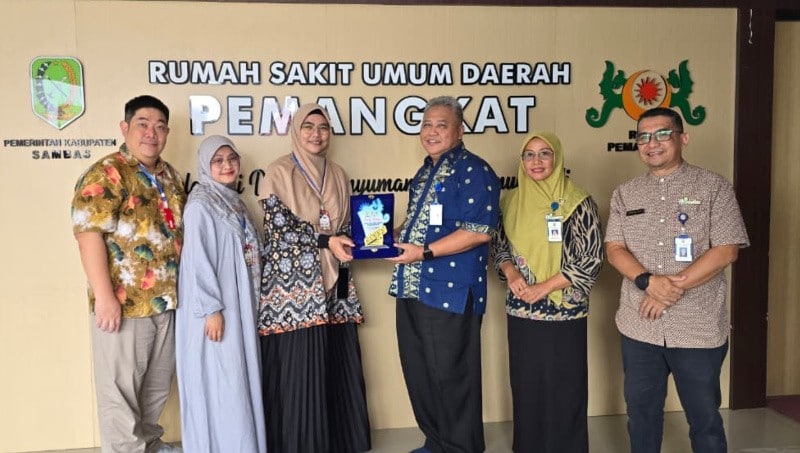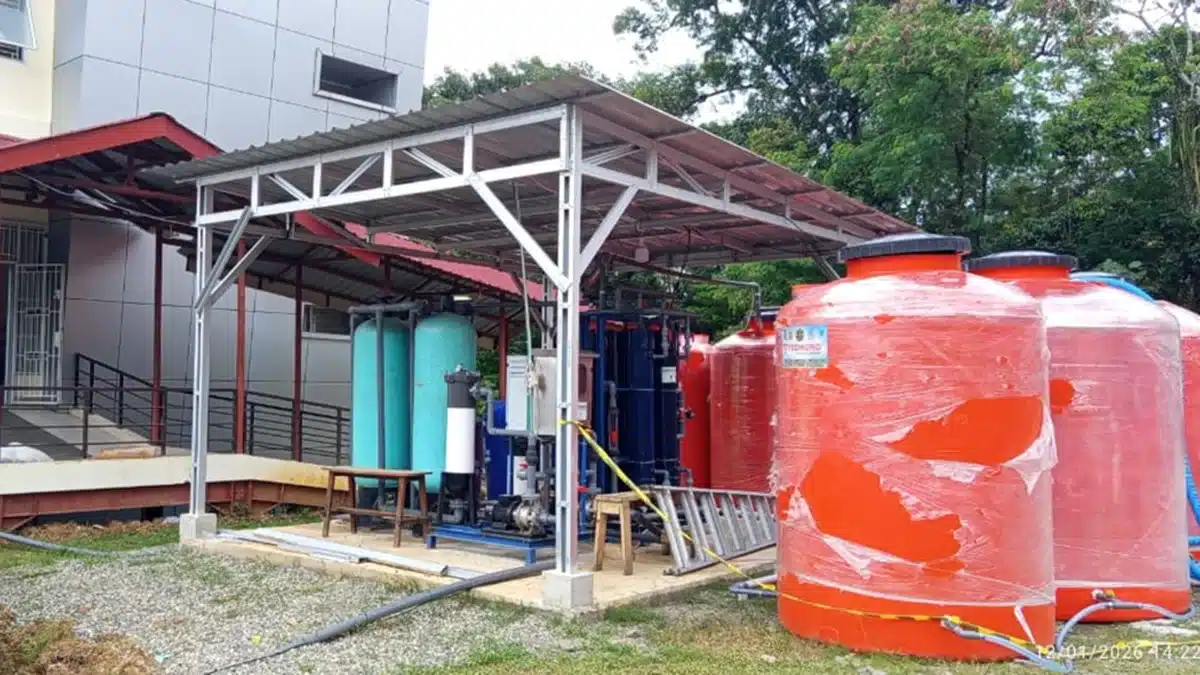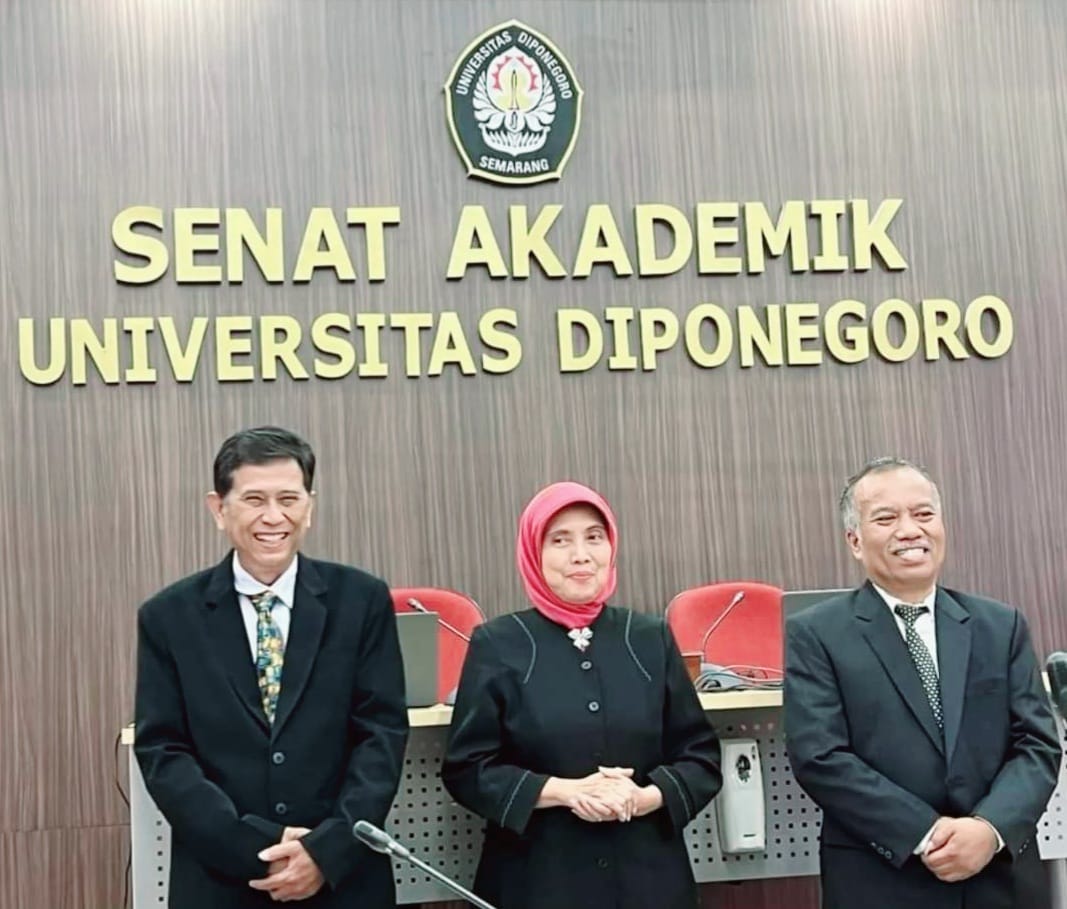Diponegoro University once again held a scientific paper presentation for three Undip prospective professors organized by the Diponegoro University Board of Professors on Friday (23/6). The three prospective professors are Dr. Ir. Bambang Yulianto, DEA. (Faculty of Fisheries and Marine Sciences/FPIK), Dr. Parsaoran Siahaan, M.S. (Faculty of Science and Mathematics/FSM), and Dr. Hartuti Purnaweni, MPA (Faculty of Social and Political Sciences).
In his paper entitled Mitigation of Heavy Metal Pollution with Wetlands (Mangroves) in Coastal and Marine Area Conservation Efforts, Dr. Bambang explained that the results of a study on the quality of coastal and marine waters on the north coast of Central Java showed that they had been polluted by various types of waste, such as heavy metals, microplastics, pesticides, organic matter, and microorganisms. Media that experience pollution range from water (river, beach, and sea) and sediment to marine biota. Pollutants that enter the coastal and marine environment, especially heavy metals, can harm marine biota, including shrimp, shellfish, fish, squid, and others. Marine biota, a food commodity (seafood) contaminated with pollutants, will trigger health risks for those who consume it. For this reason, protecting food safety from marketed marine products is necessary.
“The concept of an artificial wetland has been implemented to overcome pond pollution in the Sidoarjo Delta by Lapindo Brantas mud. The idea of artificial wetlands by planting mangrove vegetation and Gracilaria sp seaweed aims to absorb heavy metal pollutants, regulate water circulation to make sediment, and increase oxygen by using windmills to lower BOD,” said Dr. Bambang.
While the scientific work of Dr. Parsaoran discussed Molecular Modeling of Small, Medium, and Large Interacting Systems to Understand Natural Phenomena. He said that developing nanomaterial technology with intelligent characteristics requires quantitative understanding (not only qualitative) down to the molecular level, so it requires methods to help design molecules. The intelligent characteristics of materials are a function of the electron distribution within a molecule that can be tuned (tuning), which can only be done by quantum molecular modeling methods. Molecular modeling is a branch of science and a technique that can be interpreted by computational and theoretical chemistry.
“The stages of development in molecular modeling depend on the size of the system and the level of difficulty of the theory used to produce the system model. The model’s accuracy level depends on the level of complexity of the system and theory, while the computational method greatly determines the speed of calculations. Complex stability modeling is continued with molecular dynamics studies to show the stability of the complex as a function of time. The binding energies of complexes vary widely, indicating the formation of many complex conformations. The variation in binding energy is the basis used to explain the release of ligands from receptors,” he said.
In her scientific paper entitled Environmental Governance as a Pillar of Sustainable Development, Dr. Hartuti said that various environmental changes tend to be caused by humans, which cause destabilization of the earth system or ecological damage. Environmental degradation is happening more rapidly, so the issue of environmental damage has become one of the most interesting international issues in the last few decades. Increasing population numbers and human needs, as well as changes in human lifestyles that are not in accordance with the carrying capacity and capacity of the environment, are the main determining factors in the occurrence of various phenomena of climate change, pollution (pollution of soil, water, and air), food shortages, damage to ecosystems, and biodiversity habitats. Some cases cause environmental damage, for example, poor waste management and increasingly widespread mining.
“Implementation of good environmental governance is highly recommended for public management. The implementation of good environmental governance is believed to be able to encourage the realization of governance toward sustainable development. In its public manifestation, the state can strengthen its sustainable development position, manage resources and risks more efficiently and effectively, and prosper the people it is obliged to serve in an effective, fair, responsive, and robust manner,” said Hartuti. (LW-Public Relations)


